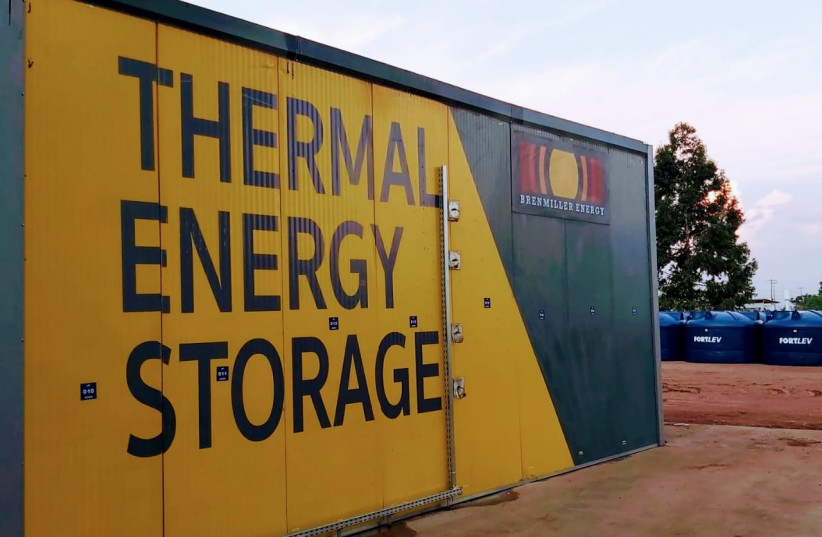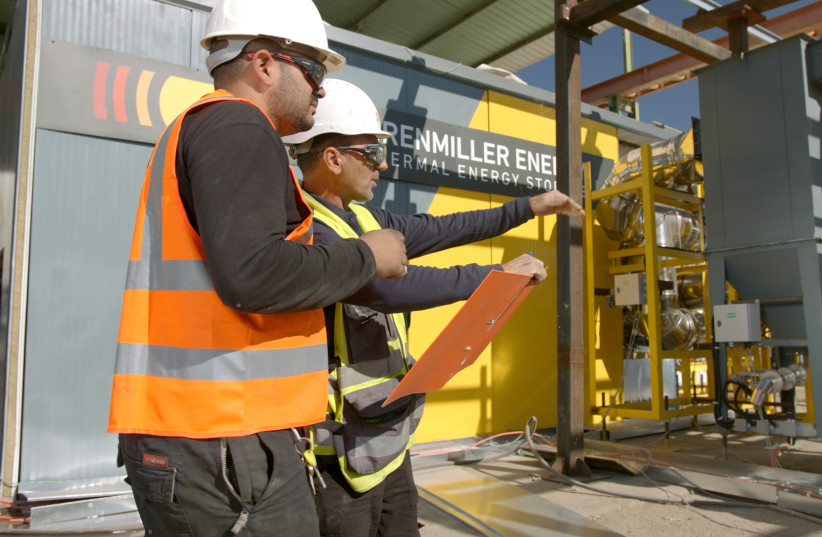Tempo is partially owned by Heineken International and is known for producing popular brand drinks such as Heineken, Pepsi and Nestle.
Published: APRIL 9, 2023

(photo credit: Brenmiller)
The Ministry of Environmental Protection has committed NIS 2.2 million to construct and install Brenmiller’s carbon-free bGen thermal energy storage facility at the Tempo beverage headquarters in Netanya.
Tempo is partially owned by Heineken International and is known for producing popular brand drinks such as Heineken, Pepsi and Nestle.
This is the ministry’s first time investing directly in such a project. According to the company’s chairman and CEO, Avi Brenmiller, the system will replace Tempo’s fossil fuel-based steam boilers that currently power the plant with clean steam. The system will have a peak output of 14 tons of steam per hour and an energy storage capacity of 35 megawatts an hour (MWh).
“We’re pleased to use this initial grant funding… to advance the development of Israel’s clean manufacturing industry by providing one of its largest beverage producers with zero-carbon heat,” Brenmiller added. He said the project is meant to redefine what it means to “drink responsibly.”
To date, battery technology-based storage systems do not efficiently store energy at the rates needed by large-scale industrial facilities, Brenmiller explained. They also do not sufficiently convert energy on demand into the heat required to produce steam, hot water or hot air. Brenmiller said its system combines storage, heat exchange and steam generation in one solution, making it work for companies like Tempo.
Brenmiller Thermal Energy Storage (illustrative). (credit: Brenmiller)
“The bGen unit is charged from different renewable sources: electrical, such as photovoltaics, wind or grid at off-peak; thermal sources such as biomass, flue-gas, heat recovery or any combination of these inputs,” according to an explanation on the company website. “This energy is captured using electrical heaters and gas pipings which run through the storage modules and transfer its heat to the storage media at high temperatures of up to 750°C. Steam is discharged in parallel or hours later to meet customer’s demand.”
Reducing carbon emissions
Tempo is expected to reduce carbon emissions and the amount it is spending on fuel by using the bGen system, said Brenmiller Deputy CEO Nir Brenmiller.
“It’s a double win,” Nir Brenmiller said.
A few years ago, the IDF installed Brenmiller energy storage technology at its Mount Harif Negev Mountains outpost on the Israel-Egypt border in a joint initiative with the Israel Innovation Authority. The IDF upgraded the facility at the end of last year with an expected annual savings of hundreds of thousands of shekels in diesel and gas and a reduction of hundreds of tons of carbon dioxide emissions.
https://www.jpost.com/environment-and-climate-change/article-738799

